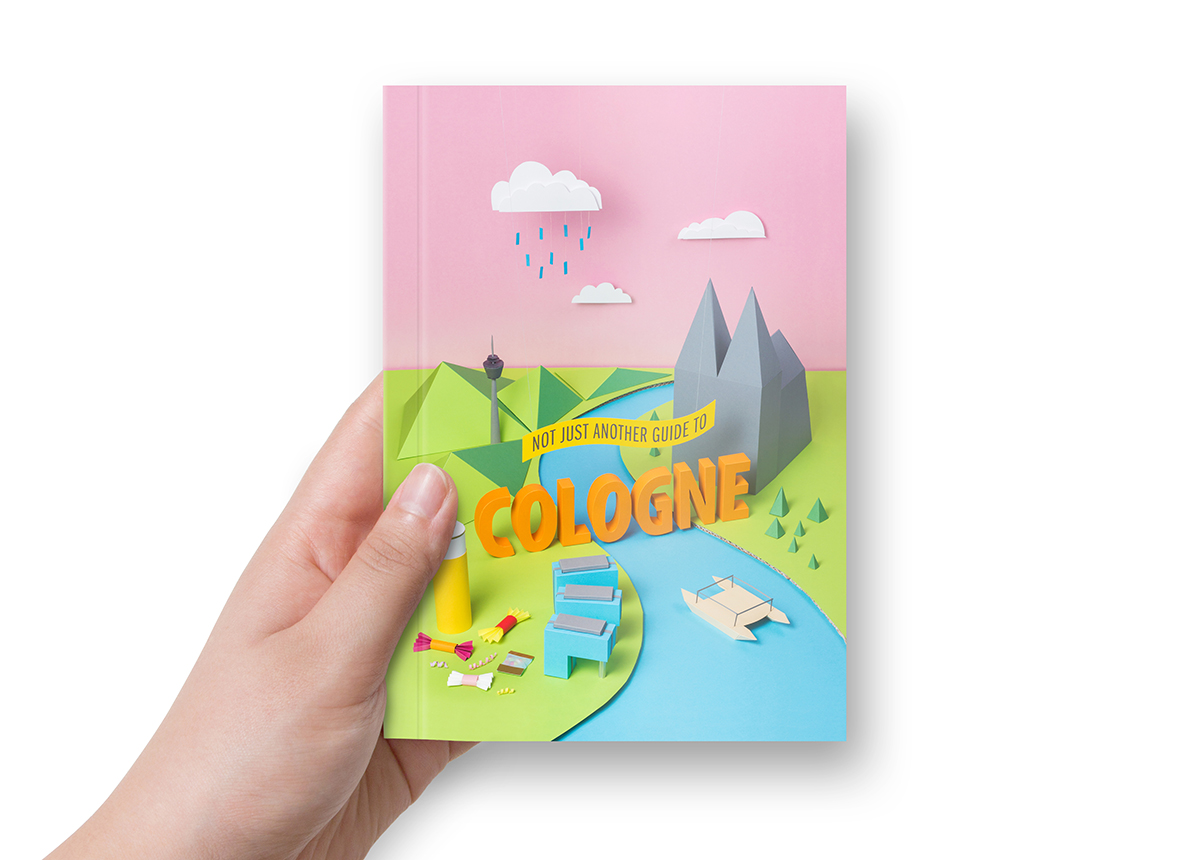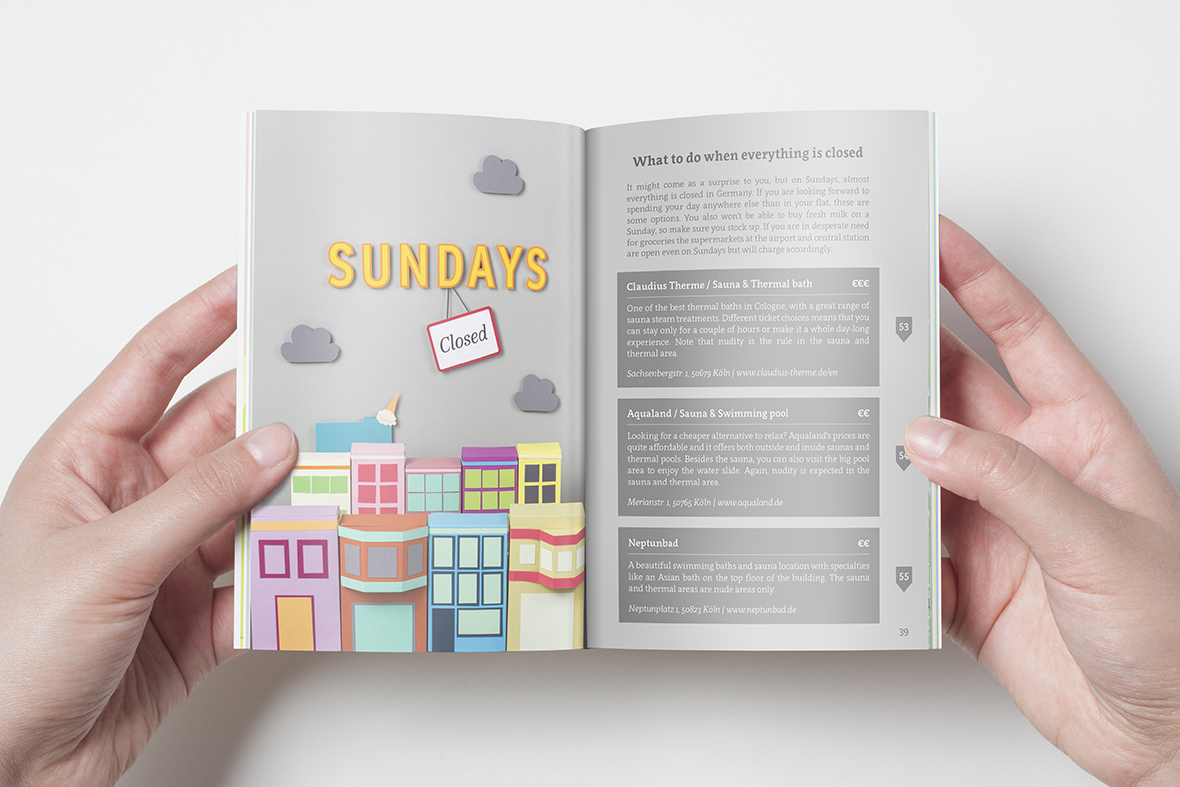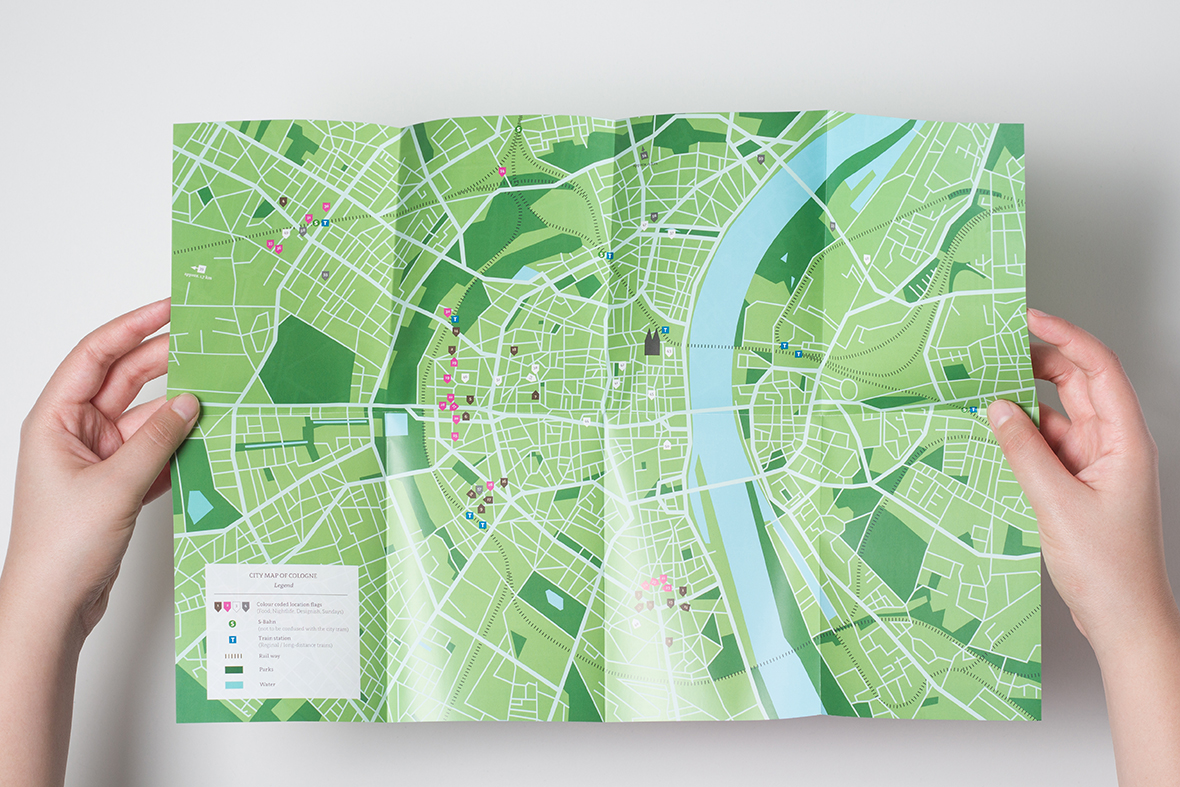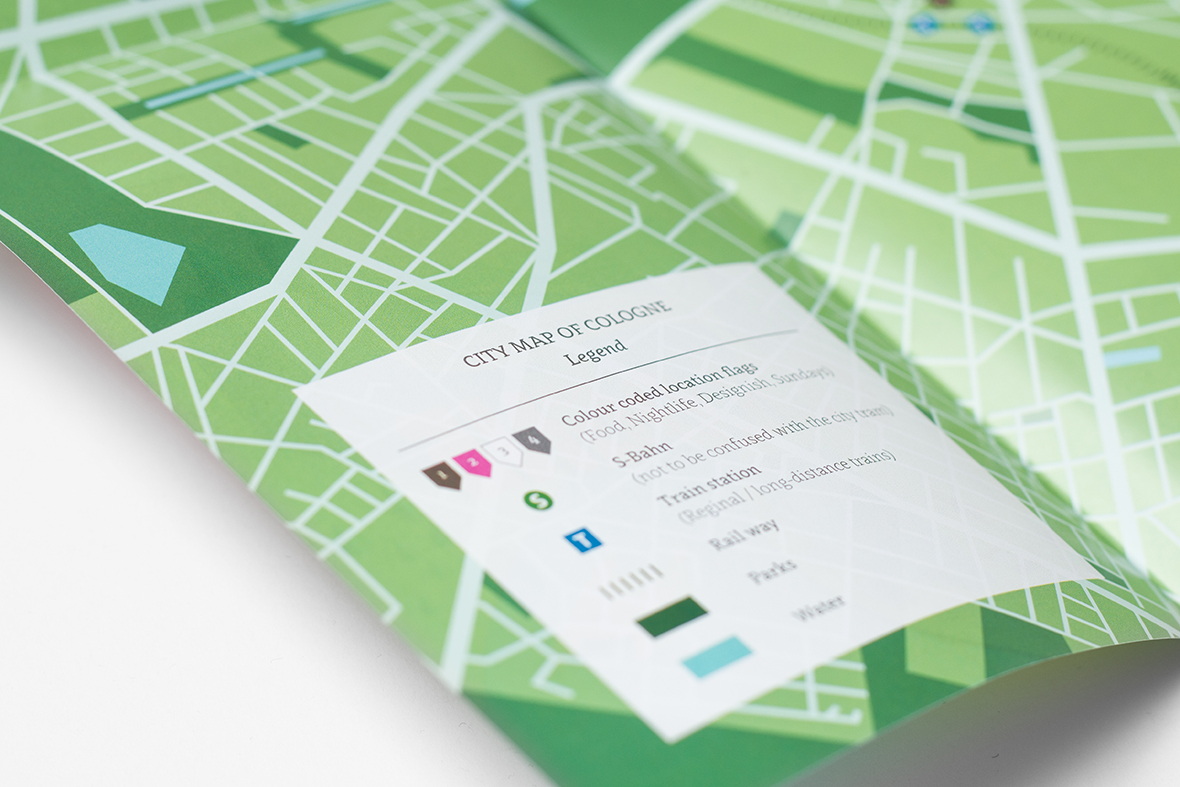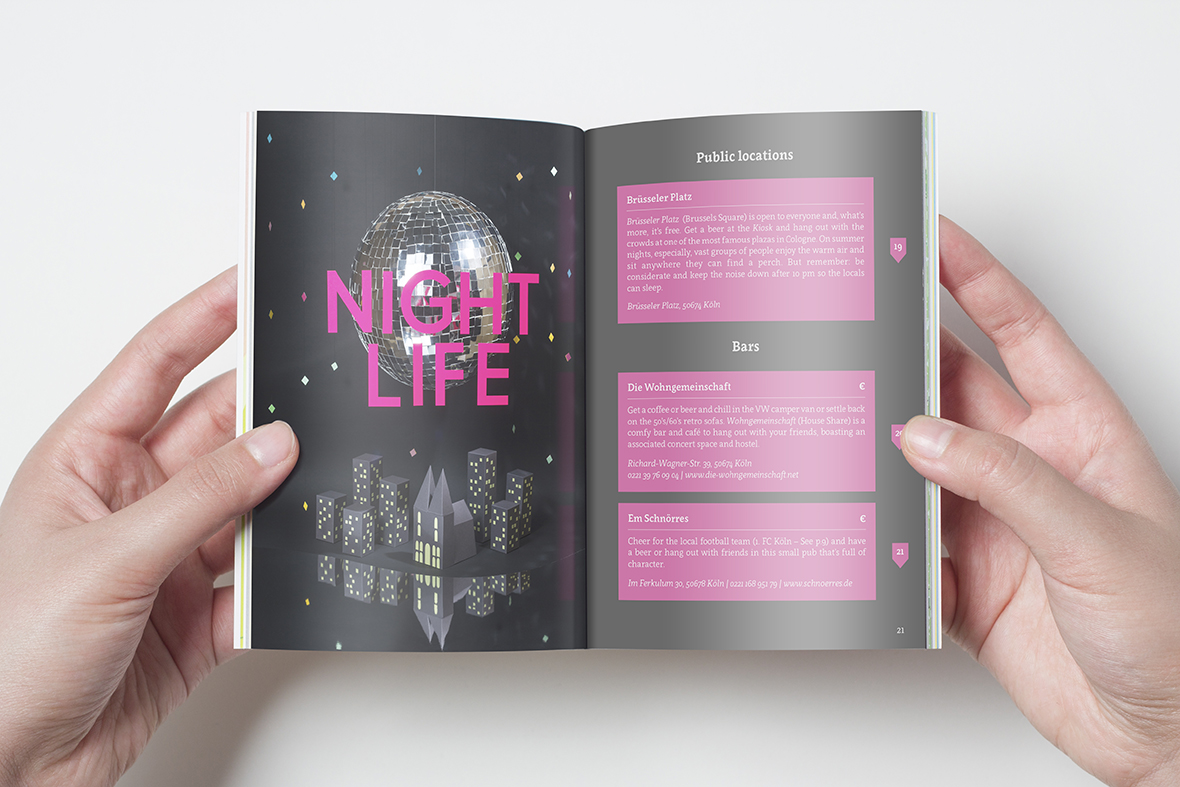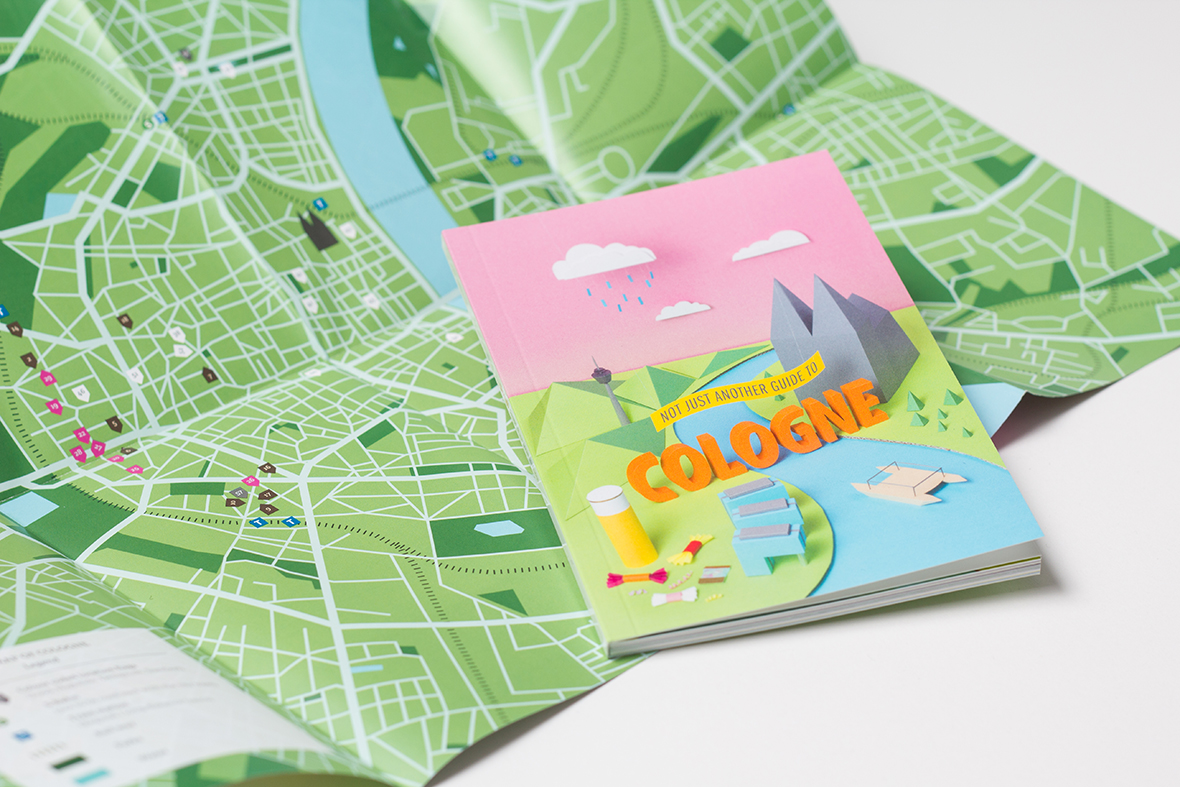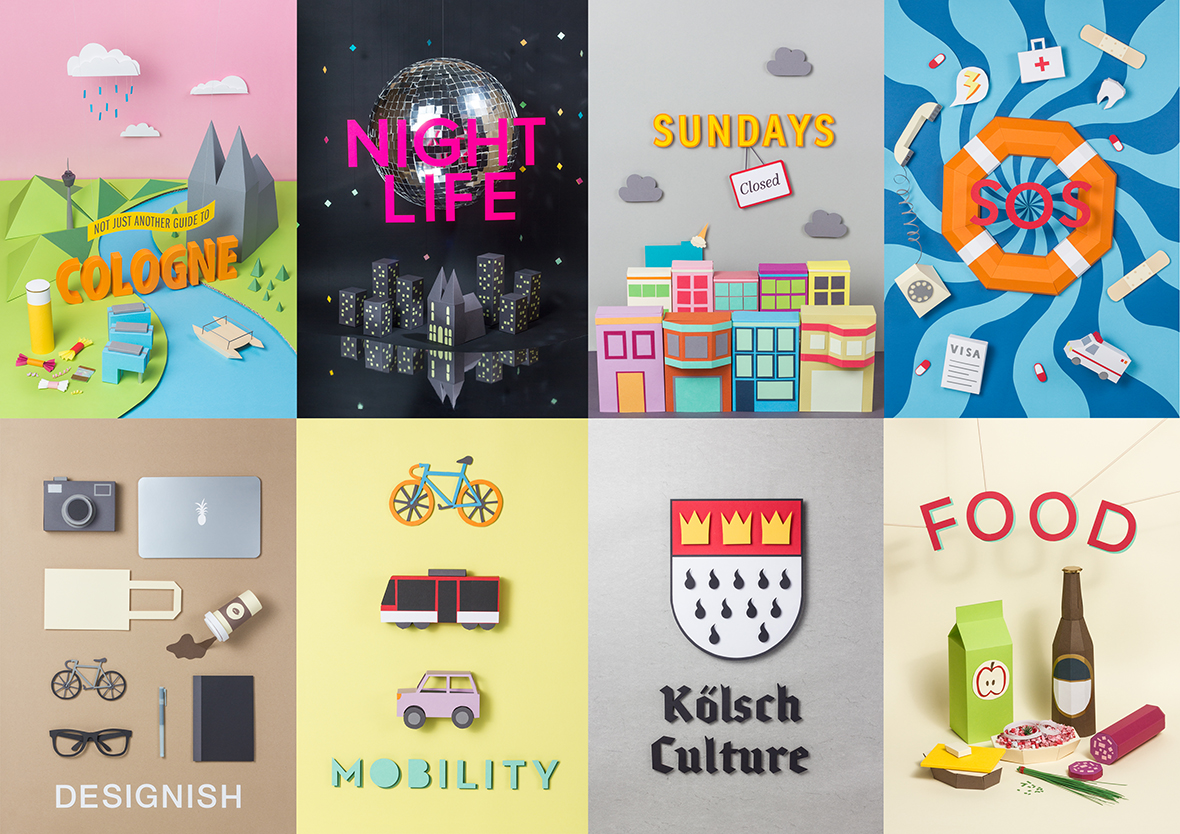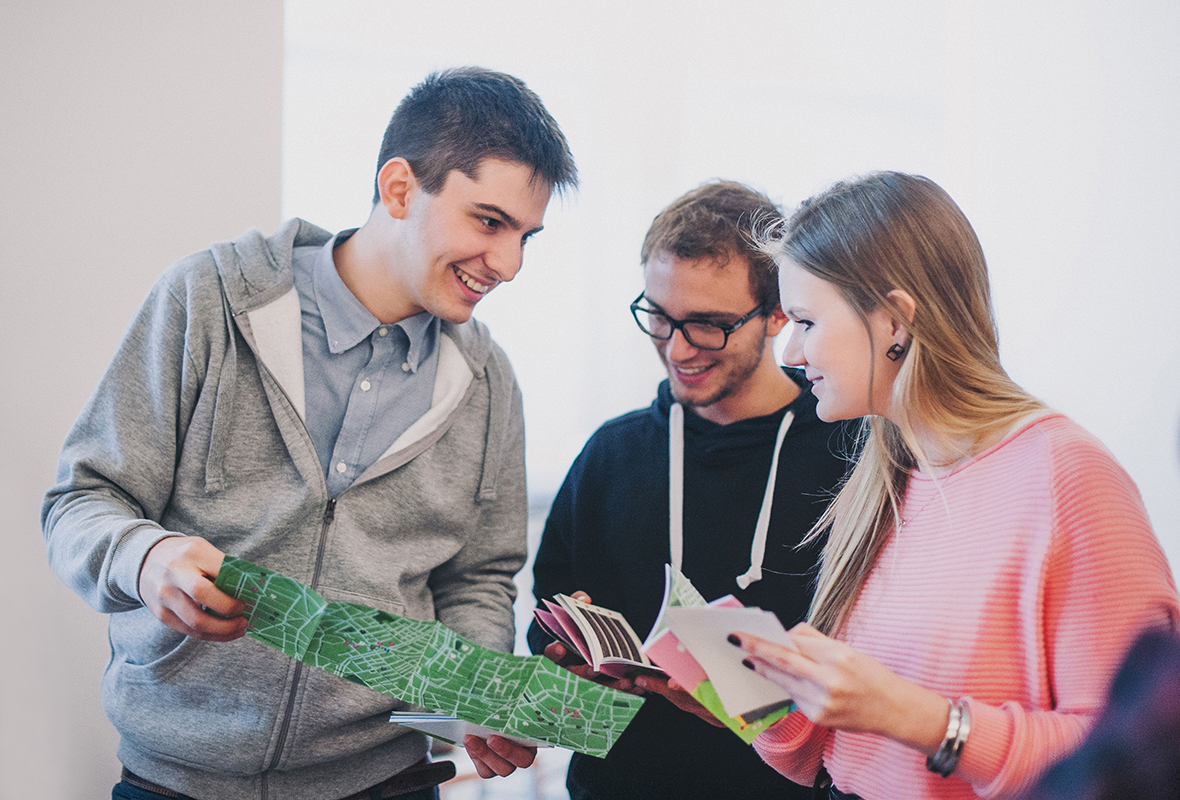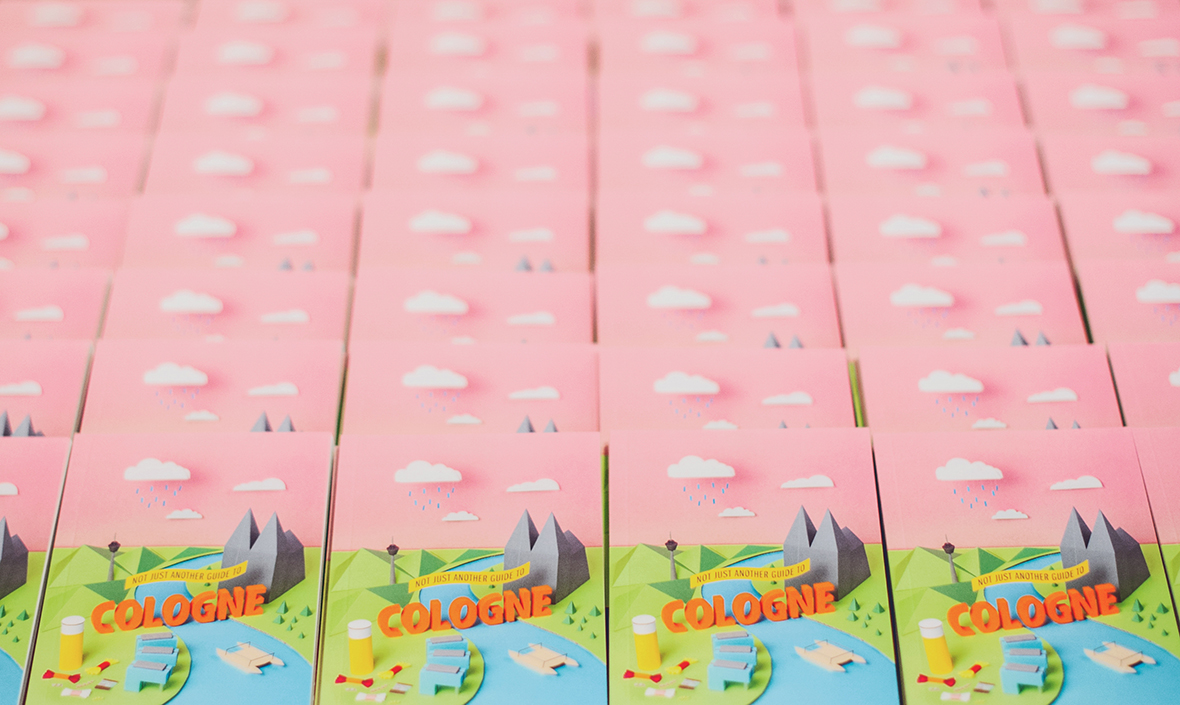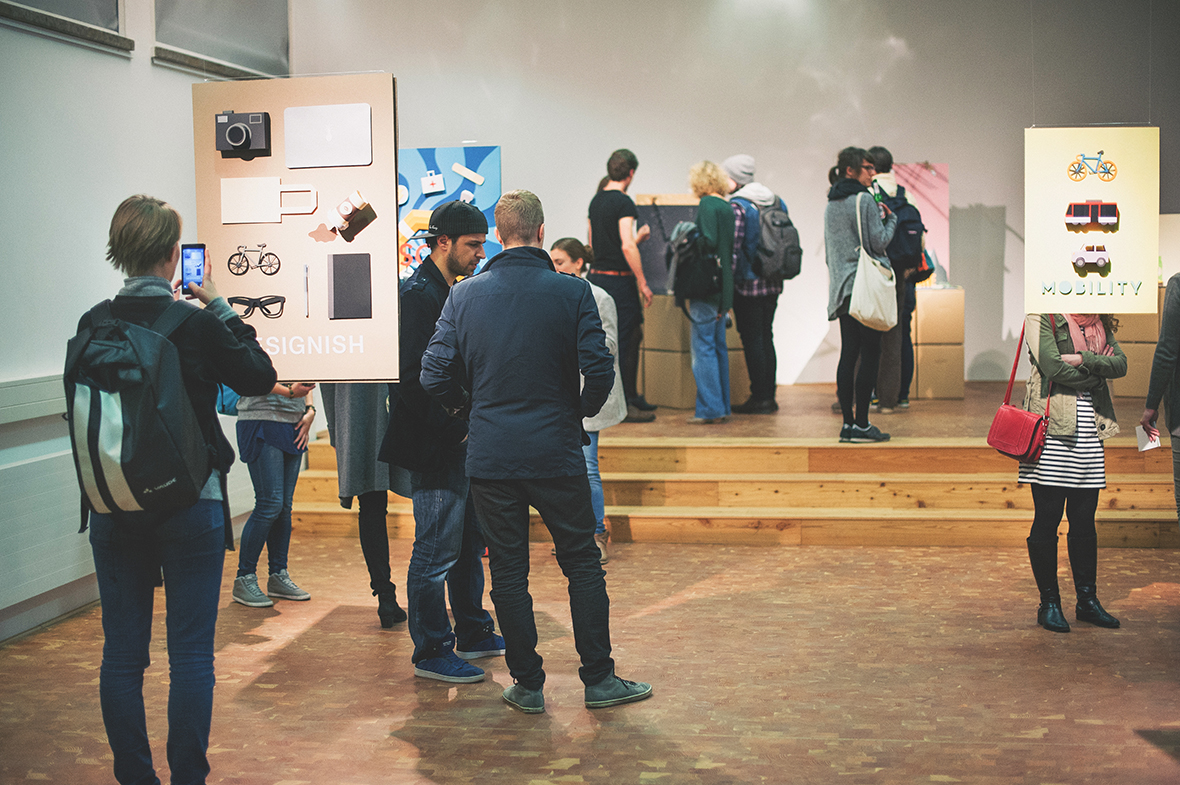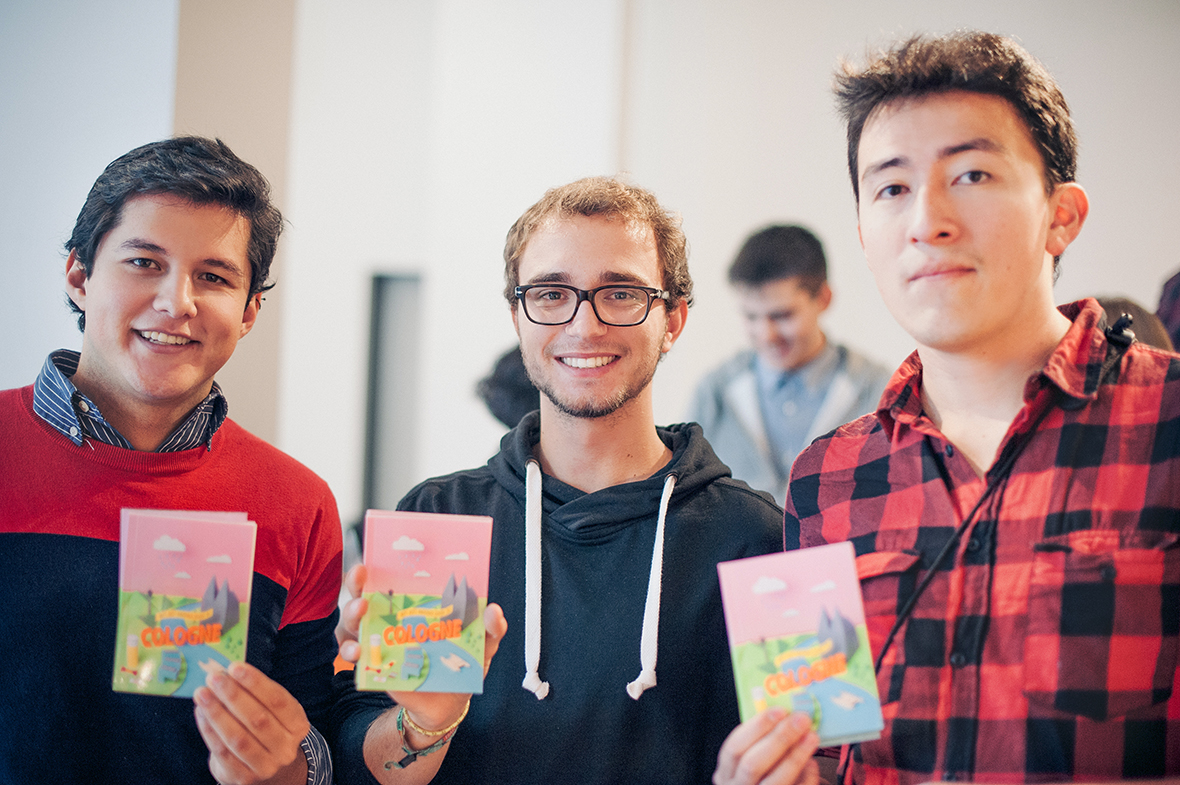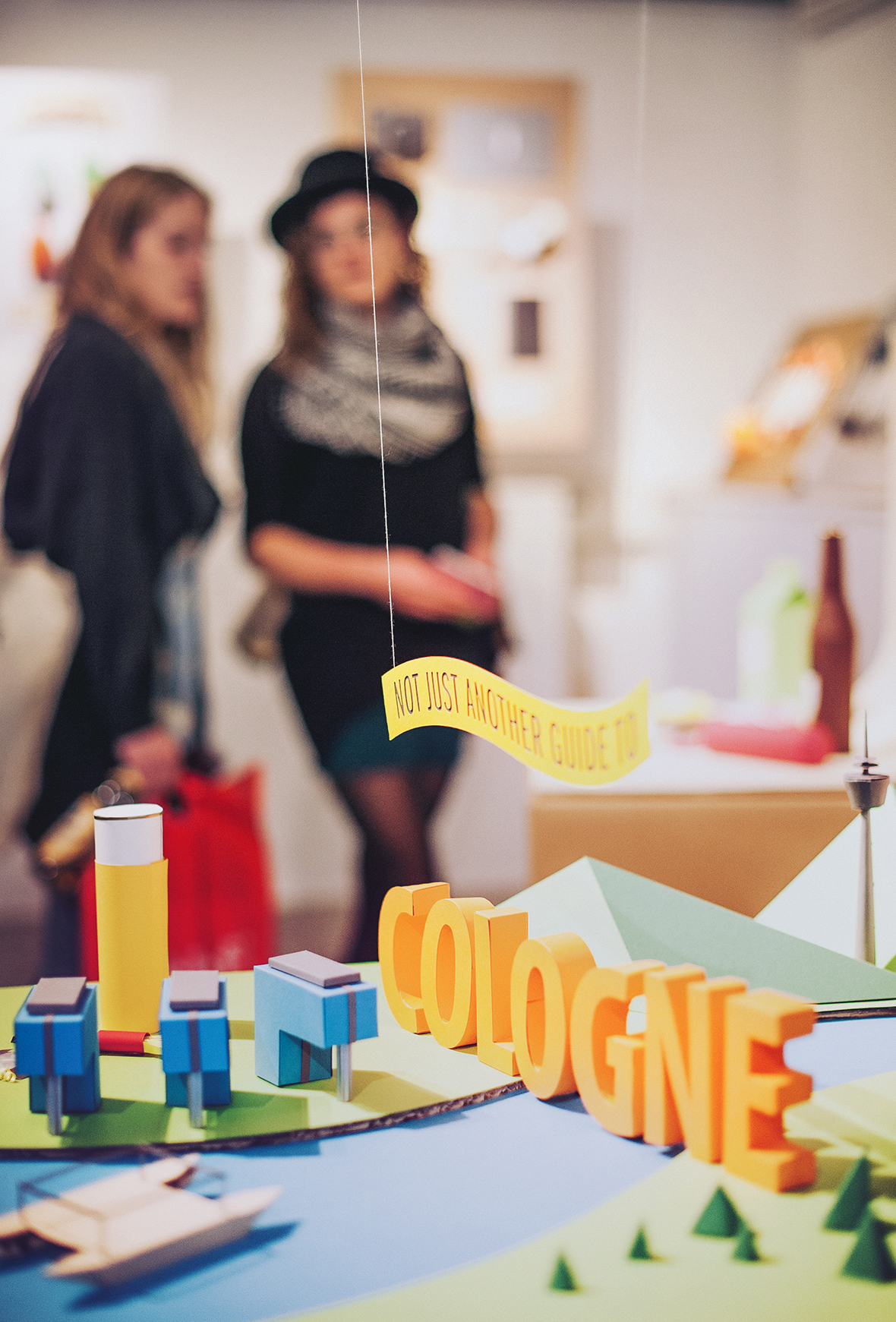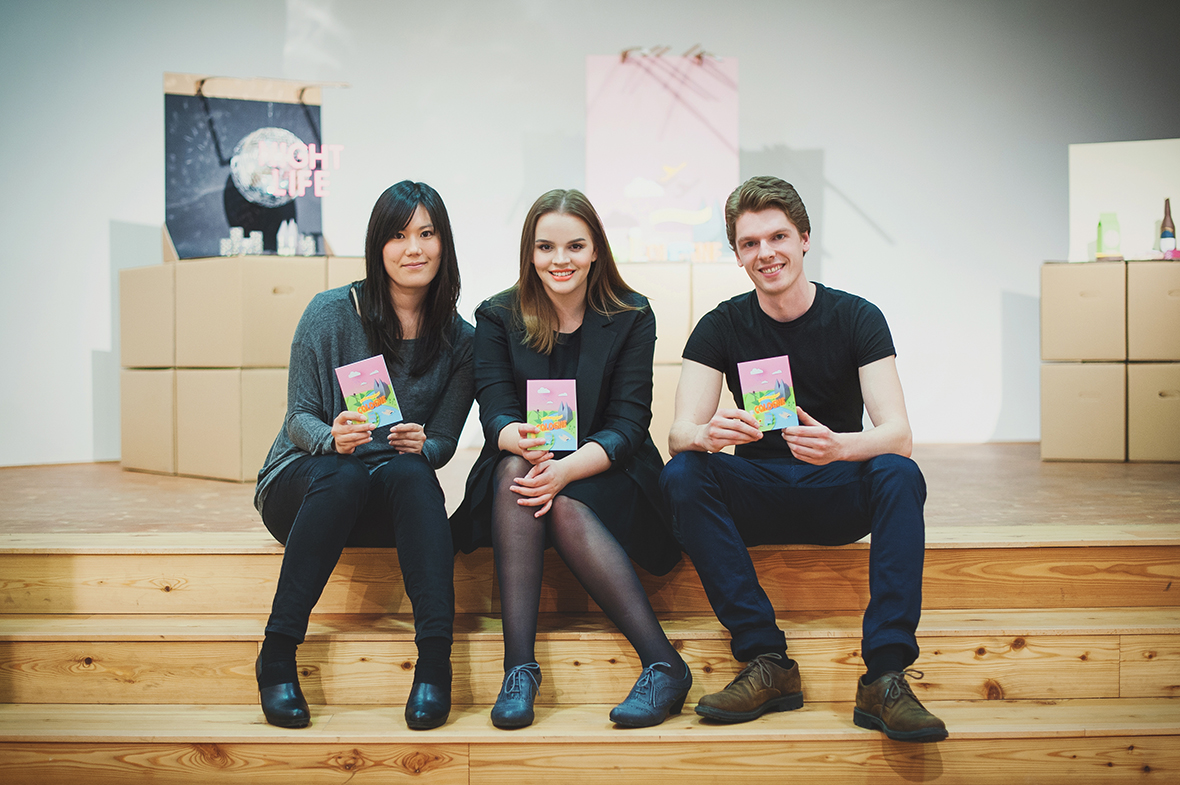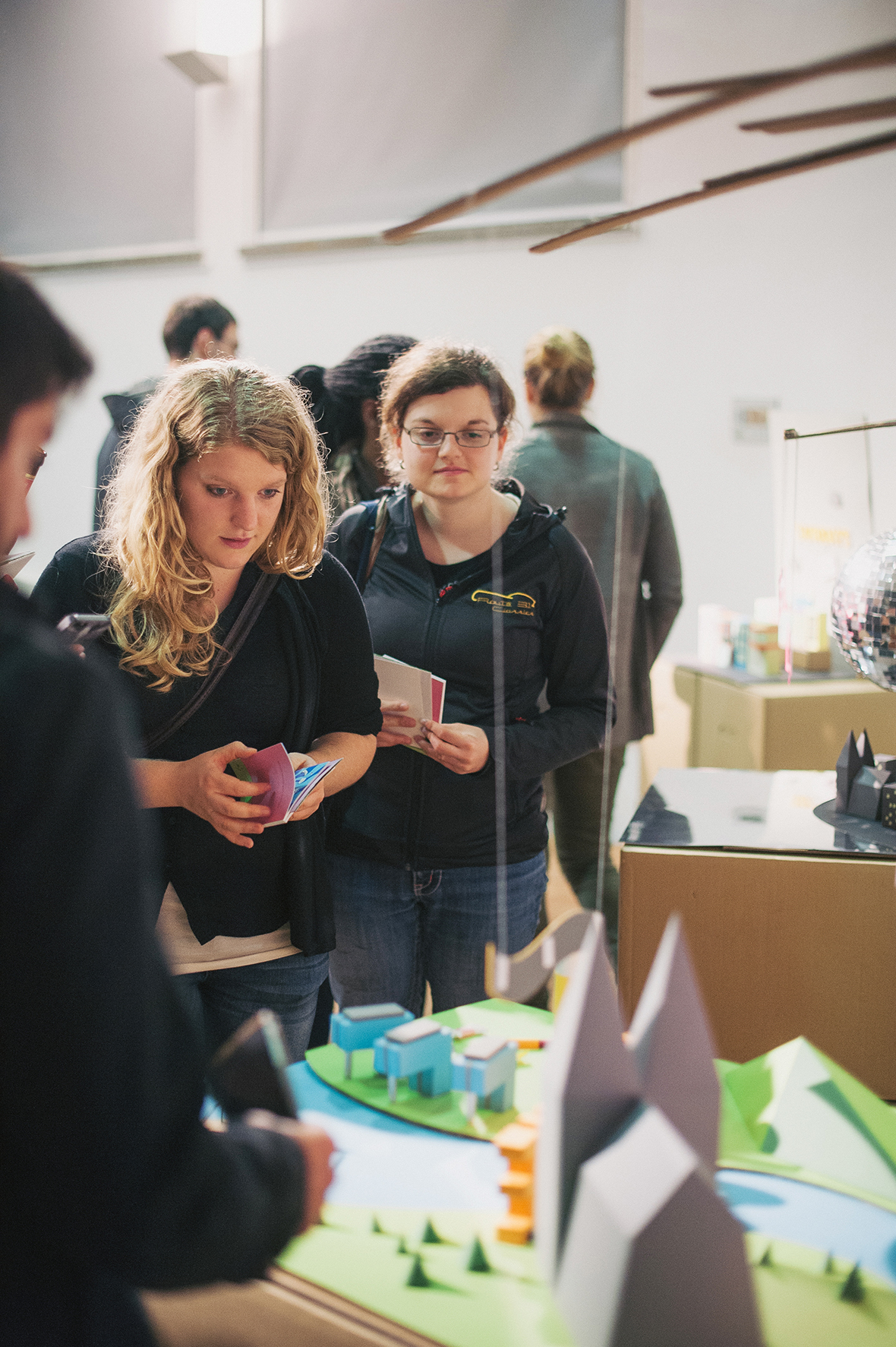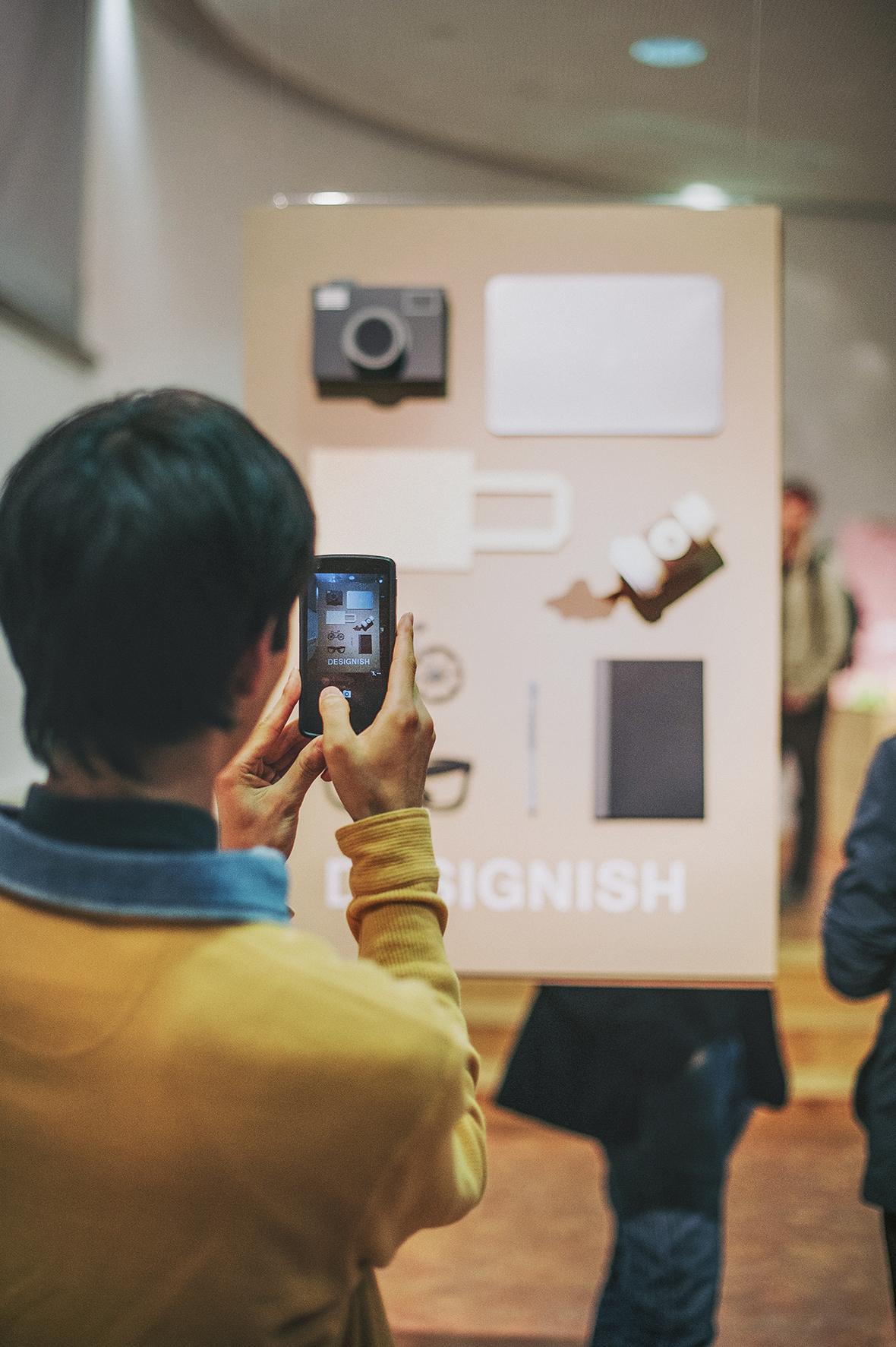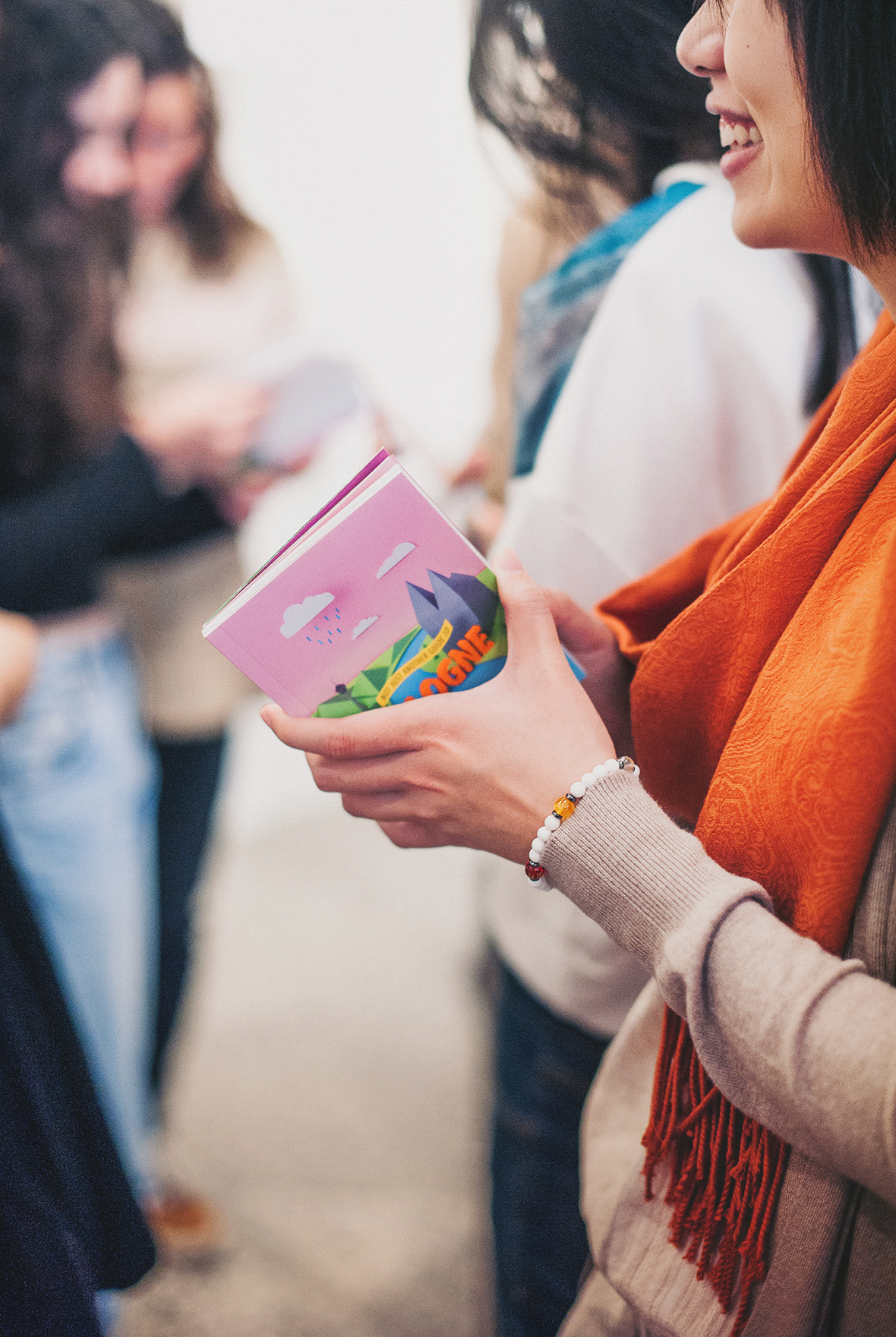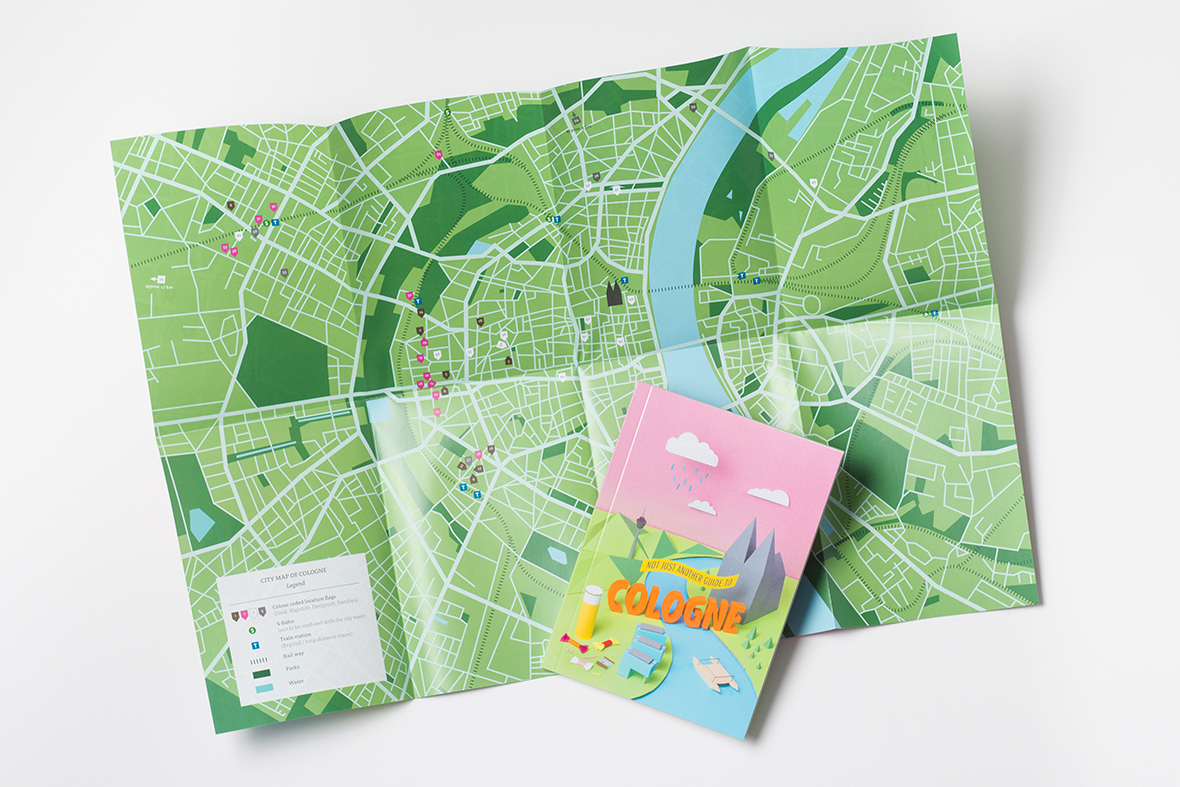
Not just another guide to Cologne
Going abroad to study at a foreign university is an exciting and challenging experience. It also means feeling a bit lost when you first arrive. So how can a university help international students to settle in faster and to explore the city?
Being part of the Köln International School of Design (KISD) and the Cologne University of Applied Sciences enables students to participate in a growing exchange program that connects universities around the globe. While many students go abroad, many also come to Cologne and try to make the most of their limited time here. Being confronted with a new culture and city, many students can’t help but feel a bit lost, especially in their first weeks and months. And then, just when they’ve finally settled in and found their favourite spots and hang-outs, it’s almost time to leave again. So how can a university help international students to settle in faster and provide a ‘tool’ for exploration?
This was one of the central questions that Jaqueline Diedam, Raoul Döring and Yuki Fukuda asked themselves when coming together to tackle the problem in the context of a self-initiated project. While talking to former and current international students at KISD, the group quickly realised that almost everyone they talked to was short on tips and information about life in Cologne after their arrival. Although there were information brochures provided by the faculty, material dealing with the local culture simply didn’t exist. “Many students experience problems, especially during the first weeks of their stay. In many foreign countries, the shops are not closed on Sundays, for example. If you didn’t know that, it can lead to some frustrating moments here.” says Jaqueline Diedam, who encountered the exact same problem when coming to Germany from her native Brazil.
With these issues in mind, the team evaluated the existing information and developed their own concept to fill this gap and to provide a helpful tool for international students coming to Cologne.
The result is Not just another guide to Cologne, a guide book giving first-hand, direct information, made by students for students. Contacting former and current students through an online survey, as well as through personal interviews, data and recommendations were collected to form a pool of topics and categories that would become the core information of the guide. It features twelve categories, from food to seasonal events, cultural and emergency information, as well as regional travel tips.
“It was important to us to create something that would not be left behind or forgotten in a drawer. We wanted this to be a souvenir that the students would love to take home and show to their friends and family.” says Yuki Fukuda. To make this happen, the visual concept took a different direction to that found in the ordinary tourist guide. Leaving the two dimensional, digital world, the team decided to visualise the cover, as well as the title pages for each of the twelve sections of the guide, with photographs of detailed scenes from Cologne constructed from coloured paper. These colourful paper models took about three hundred working hours to complete and, in the end, around a hundred meters of tape was used to fix 120 square meters of cardboard and paper together. The layout was kept visually simple and clean, to provide an easy-reading experience and to enable the reader to quickly take in the content.
While still finalising the project, the concept was presented to Cologne Faculty of Applied Sciences’ International Office , since the goal was to provide as many new students of Cologne with this information as possible. After great interest in the final product, a first-edition print run of 1,000 guides was agreed upon and was published and financed in cooperation with KISD.
Finally introduced in the winter semester of 2014 to all new incoming international students, the guide comes as a three-piece welcome gift with the guide book and a fold out map for navigation, as well as a postcard to send home. “Through this project we really hope to connect more people to this great city of Cologne and to show the diverse and vivid way of live here.” says Raoul Döring “I grew up here in Cologne, but even I gained a new perspective on the city during this project. It was a very useful experience.”
Since, from the beginning, the project was conceptualised as a long-term implementation, the information in the guide can be updated easily without a great deal of effort in the future to provide many more semesters with the fruits of the project.
In addition to the guide itself, an exhibition took place, showing the many paper models and giving a behind-the-scenes look at the making of the project. The models and scenes are still on show as a temporary exhibition at KISD.
Publisher
Köln International School of Design
Concept, Editing and Layout
Jaqueline Diedam
Raoul Döring
Yuki Fukuda
Event Photography
Anna Shapiro
Supervised by
Prof. Iris Utikal,
Lisa Janßen (M.A.)
International Relations Officer
English proofreading
Tim Danaher
Lisa Janßen
Weblog
Geheimwaffe Geruch: Wie Düfte unser Denken beeinflussen
High Dining: Wie Cannabis die Gourmetküche in Nordamerika verändert
Der Jobwechsel und seine Tücken – so vermeiden Sie sie
Die Bedeutung von Farbtheorie und Technologie bei der Wahl einer Webhosting-Plattform
Zwischen Haptik und Storytelling: Die Verpackung als multisensorisches Erlebnis
Jenseits der großen Namen: Die Kunstszene der Zukunft entdecken
Die Kunst hinter dem Design
Günstige Zimmer in Dresden – für Monteure und Handwerker
Webdesign und Entwicklung neu gedacht: Strategien für digitale Erfolge
Grafikdesign für internationale Kampagnen: Wie man Layouts für verschiedene Sprachen optimiert
Mehr Nachhaltigkeit im Alltag: Produktdesign, Verpackungen & Abkehr von der Wegwerfgesellschaft!
PayPal Alternativen: Eine Übersicht
Nachhaltigkeit trifft auf Funktionalität: Die Bedeutung innovativer Verpackungslösungen für modernes Design
Der neue Minimalismus: Warum der Landhausstil wieder als Statement gilt
Nachhaltiges Design: Was steckt hinter der umweltbewussten Produktgestaltung?
5 nützliche Tipps für die Wohnungsrenovierung
Licht als Gestaltungselement von Räumen
